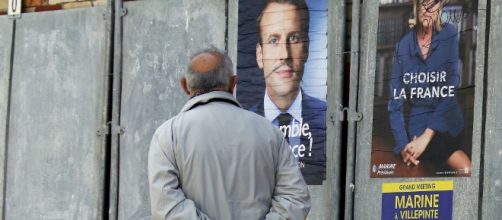The Legislative elections in France that will take place on 11 and 18 June are wrapped in a scenario marked by the influence of Jihadist terrorism. Although the latest attacks have been located in the United Kingdom - Manchester and London - France continues to suffer attacks such as the one that occurred on the afternoon of Tuesday 6 June. In the environs of Notre Dame, the police shot a man who had hammered an agent and had links with the Islamic State.
- Before the French are called to the polls, leaving aside the actuality of the attacks, there are four basic clues about the legislative Elections In France that should be remembered.
Two types of elections
In France, the electoral system is marked by two types of different votes: presidential and legislative.
In this second case are included the elections that will take place on June 11, which will decide who will be the members of the Assembly. Voters decide by their vote who is the representative - only one - of their constituency. In total there are 577 deputies who are elected in up to two rounds of voting - what is known as balotaje.
- The presidential elections, on the other hand, took place on April 23 and May 7. These two days were the ones chosen for the first and second round, respectively, of votes that raised Emmanuel Macron as President of the Republic.
How is the electoral system in France?
In the legislative elections, the French system is majority and only one seat is elected in each constituency.
To constitute a parliamentary group it is necessary to have a minimum of 15 deputies in France.
The presidential elections in France are of the parliamentary type of majority uni-nominal scrutiny with Balotaje. Behind this difficult name hides a voting system in which voters choose a single candidate from among those who present themselves, being the winner the one that supports the most.
- If an absolute majority is not achieved in the first round, the electors must choose between the two candidates who have obtained more support.
But only if he obtains an absolute majority will he proclaim himself the winner of the elections. If it does not obtain a majority of votes, it is used, what is known as balotaje, that is, a second round of voting after 14 days of the first ballot which is a repetition of the call to the polls.
In this case, the electors will only have to choose between the two candidates who have obtained more support in the first round.
Some less traditional legislative
Although traditionally the legislatures usually give the president a majority that allows him to implement its policies without the need for pacts or support, this time the decomposition of traditional parties in the presidential election makes the result more uncertain.


